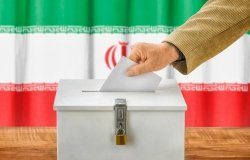Shutterstock
Blinded by Silence: Foreign and Security Policy Discourse in Pakistan -The 2020 Asma Jahangir Memorial Lecture
Overview
This event, an address by Dr. Ayesha Siddiqa, marks the 2020 Asma Jahangir Memorial lecture. It is part of an annual lecture series in honor of the late Asma Jehangir, a leading human rights activist from Pakistan who passed away in 2018. The lecture series features an annual address by a distinguished scholar or opinion leader who addresses issues of democracy and human rights in South Asia. The series is hosted by the Wilson Center's Asia Program and South Asia Democracy Watch (SDW), a nonprofit organization that promotes social justice, human rights, and equality in South Asia through educational programs, conferences, and symposia.
In her lecture, Siddiqa argues that Pakistan, like the rest of the world, is confronted with an increasingly toxic multipolarity that is imagined in the bipolar terms of the Cold War era. For Pakistan, China and Russia are the new power centers through which it hopes to engage and carve out its own space in South Asia and beyond. However, she argues, Pakistan's strategic thinking is constrained by historical and structural inadequacies that have contributed to a poverty of imagination. She also asserts that the country's strategic community lacks alternative voices, which have been systematically crushed.
Selected Quotes
Ayesha Siddiqa
“The other dimension of this hybridity is that the civilian government has started to replicate the bigger partner-the military- by being politically offensive and behaving undemocratically. Its main method of dialogue with the political opposition is through an undemocratic institution such as the national accountability bureau which has very little capacity of its own to fight white-collared crime but is used selectively to bring the opposition to its knees.”
“I want to emphasize how serious is the issue of silencing of voices, especially as extremist ideology turns into a tool used against dissent. Even conversation and asking simple questions is not easy in an environment where blasphemy is used as a tool to silence people…Now there is a real fear of people being killed for expressing their belief or simply being on the wrong side of the argument without any institutional protection. The rampant extremism of the society is a trend that is not about to be changed. But, what is worse is it's mixing with enforced patriotism and nationalism. A weak society that has multiple methods for silencing, compounded with a very strong and vicious state is a scary formula”
“The important question that needs to be asked is Pakistan’s ability to calculate both the benefits and the costs of how it’s imagining or reimagining the globe and its relations with it. Pakistan’s conflict with India is something which now has become even more permanent. And…it expects China to do the heavy lifting as far as its relations with India is concerned.”
“The political parties have so weakened themselves in the process that they cannot fight back. I mean, how do you come together? How do traditional political parties come together... the overall security environment is so tenuous. A prime minister was killed … you know Benazir Bhutto was assassinated…The fact of the matter is that … militants are still running wild in the country. So the threat remains … how does a leader really conduct political gatherings, political engagement when you know security is a real question.”
About the Speakers
Ayesha Siddiqa is a research associate at SOAS University of London. Her expertise lies in military decision making, defense economics, civil-military relations, and militancy and extremism in South Asia and the Middle East. She has been a recipient of the Charles Wallace Fellowship (Oxford) and the Ford Fellowship. In 2004-05, she was the Wilson Center’s inaugural Pakistan Scholar. She is the author of Military Inc.: Inside Pakistan’s Military Economy, and she has published 12 book chapters and over 300 articles in academic journals and opinion pieces in leading national and international outlets. She is the only woman and civilian to work with the Pakistan Navy as director of naval research. She has also worked as an advisor to the chairman of the National Accountability Bureau (NAB), Pakistan’s anti-corruption watchdog.
Michael Kugelman is Asia Program deputy director and senior associate for South Asia at the Woodrow Wilson Center. He is responsible for research, programming, and publications on South Asia. His specialty areas include Afghanistan, India, Pakistan, and U.S. relations with each of them. His recent projects have focused on India's foreign policy, U.S.-India relations, India-Pakistan relations, the war in Afghanistan, and U.S. policy in South Asia. He is a regular contributor to publications that include Foreign Policy, The National Interest, and CNN.com.
Introduction
Qaisar Abbas
Hosted By

Indo-Pacific Program
The Indo-Pacific Program promotes policy debate and intellectual discussions on US interests in the Asia-Pacific as well as political, economic, security, and social issues relating to the world’s most populous and economically dynamic region. Read more
Thank you for your interest in this event. Please send any feedback or questions to our Events staff.











